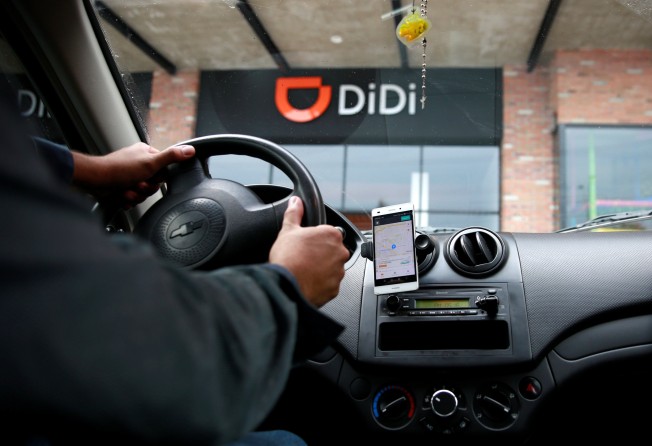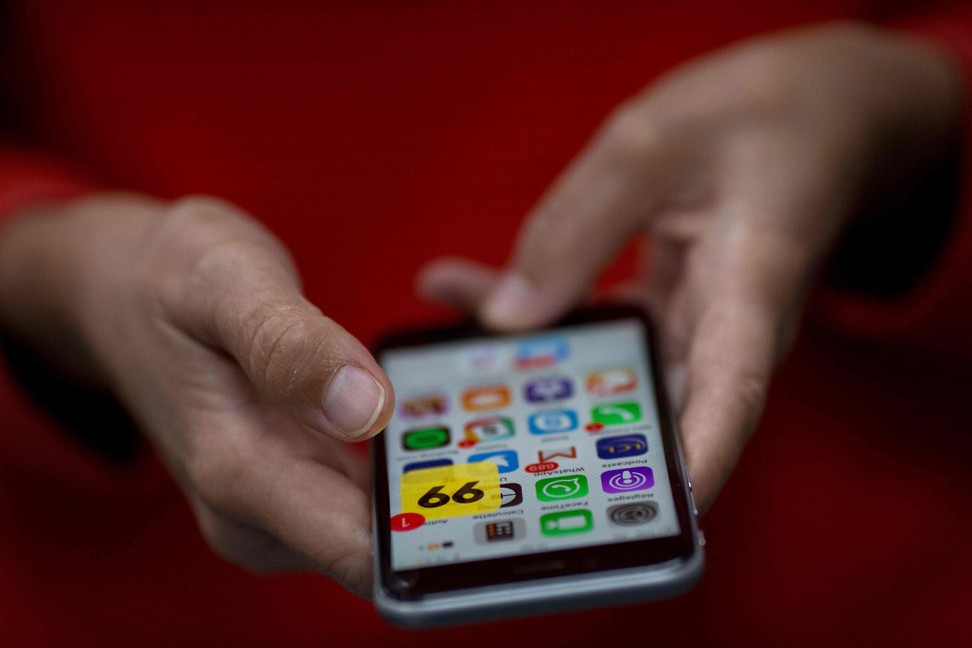
It pays to digitise, as shown by Didi’s challenge remitting Latin America funds to Singapore amid the coronavirus outbreak
- Banks are ripping up paper-based rules and digitising to make capital flows easier to manage
- From net IPO roadshows to private bankers FaceTiming the rich: digital solutions keep capital flowing

Chinese ride-hailing giant Didi Chuxing hit a snag as it tried to route money from a new Latin American market to Asia as the coronavirus pandemic disrupted traditional ways of banking.
Didi, which is backed by Japan’s SoftBank, wanted to move the money to its treasury hub for international operations in Singapore. To do this, Didi needed to open a bank account quickly in the Lion City for the proceeds from that market to land in and from where it could pay drivers. Traditionally, opening a corporate bank account needs face-to-face meetings and documents couriered to a bank branch.
That is where the problems started. Staff at Beijing-headquartered Didi who needed to sign and stamp the paperwork with chops were working from home mid-February to limit the chance of getting infected with Covid-19.
Didi, valued at around US$51.64 billion last year, faced a delay in opening a new market, derailing its business roll-out across the continent and missing out on revenue at a time when the coronavirus has hit demand in its home market. Didi operates in Brazil, Mexico, Columbia, Chile, Costa Rica and entered Panama on March 10.

The spread of the new coronavirus is exposing the vulnerabilities of some of the more antiquated corners of banking.
Paper-based rules and regulation to root out money laundering have rendered the simple act of opening a bank account a slow and tedious process. Clients must produce documents such as proof of legal address, ownership structure, business registration certificate and passport copies of business signatories. With the time taken to collect these documents, have them couriered, checked for any discrepancies and then address those discrepancies, opening an account could take anywhere from a day to a month or longer.
Some banks are ripping up paper trails and digitising to make capital flows easier to manage. The spread of the coronavirus is accelerating this trend, starting in Asia, said bankers.
“A crisis like this is a wake-up call if you are not digital. How do you move money?” said Sanjeev Jain, a senior banker in Citigroup’s treasury and trade solutions business in Asia-Pacific.
From letters of credit placed on blockchain to net roadshows for IPOs, bankers are adapting to working conditions where face-to-face meetings with clients and large gatherings are discouraged.
Even the rarefied world of private banking where personal relationships and one-to-one meetings have been de rigueur is turning to digital platforms.
Private bankers at Union Bancaire Privee in Hong Kong have split between two offices in the city and home since early February to avoid cross-contamination, but are still connecting with wealthy clients through video conferences, traditional phone calls and FaceTime chats on their iPhones.
“For us, it’s key to keep in touch with our clients and to continue to provide advice to them through these difficult times through a different communication channel,” Eric Morin, the Swiss private bank’s Hong Kong chief executive, said.

Bankers around the world can draw lessons from the digital innovation happening in Asia, where the coronavirus originated.
To solve Didi’s problem, New York-headquartered Citigroup turned to a relatively new concept in banking: digital onboarding.
Citi, which handles US$4 trillion of transaction flows daily, rolled out digital onboarding around the world last year and now uses it in 10 markets across the Asia-Pacific region, including financial hubs Singapore and Hong Kong. However, some clients stubbornly stuck to analogue – that is changing now.
“This crisis is prompting our clients to embrace digital,” said Citi’s Jain.
Working digitally, clients can open an account as quickly as a couple of days. If clients have already lodged documents with the bank, they do not have to resubmit all their data again as they would have to do in the old paper-based system every time they wanted to open an account. Citi opened the account digitally for Didi in Singapore within a week.
Companies working with other banks might not have had this option. Citi is one of the very few banks that support cross-border digital account opening, and the banks that offer the service across continents is even more exclusive.
“Citi became a main provider of overseas capital operations solutions for Didi as early as 2017 as Didi began expanding its international business. The two parties have built mechanisms and expertise in swift response for many different situations. The coronavirus situation does not affect Didi’s normal international capital operations,” said Aman Singh Chadha, Asia-Pacific technology and communication sales sector head, treasury and trade solutions at Citi.
Didi declined to comment further on its banking procedures.
Such examples of digital adoption and workarounds are proliferating in Asia. The case studies provide valuable fodder for companies and bankers around the world as the coronavirus spreads to other countries.
Jain said that his colleagues are familiar with the digital onboarding solution as it is live in each region at the bank but because Asia is several weeks into the Covid-19 pandemic already, he is sharing his work with others.
“We are sharing how a client could benefit because they adopted a digital solution where otherwise they would have really struggled,” said Jain.
Additional reporting by Chad Bray
Purchase the China AI Report 2020 brought to you by SCMP Research and enjoy a 20% discount (original price US$400). This 60-page all new intelligence report gives you first-hand insights and analysis into the latest industry developments and intelligence about China AI. Get exclusive access to our webinars for continuous learning, and interact with China AI executives in live Q&A. Offer valid until 31 March 2020.